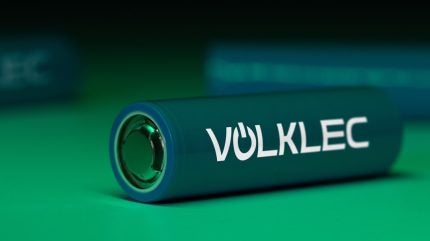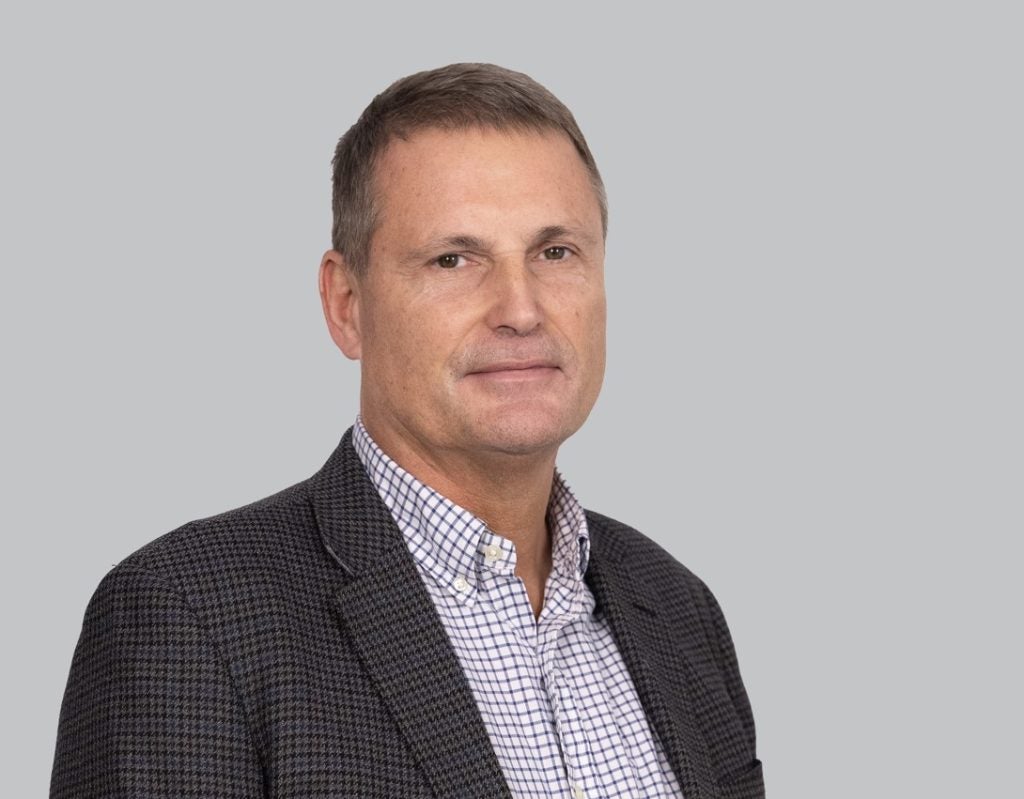
Volklec, the only independent battery manufacturing business in the UK, recently announced a major step in its journey to industrialisation and scale-up. The announcement saw a licence agreement being reached with Asian battery supplier, Far East Battery (FEB).

Discover B2B Marketing That Performs
Combine business intelligence and editorial excellence to reach engaged professionals across 36 leading media platforms.
The agreement sees technology and knowledge transfer taking place, with Volklec manufacturing advanced lithium-ion batteries in the UK with production starting later this year.
Two specifications of lithium-ion 21700 cylindrical battery cells will be manufactured, with the first to production being a proven energy cell; a compact cylindrical cell using NMC chemistry.
We spoke to Phil Popham, executive director, Volklec, to learn more about the agreement and to discuss why they are the only UK-based battery manufacturer at present.

Just Auto (JA): Could you tell me about Volklec?
Phil Popham (PP): We’ve been working for over a year on this project. It began with conversations with its founder, Frontive Group. They are a family business; Imran Khatri is a hands-on founder.
We started having conversations about the need for battery sales. Imran has got an interest in this area, and with my background in automotive (my last executive role as CEO of Lotus Cars developing the ‘Vision 80 strategy’, which was a product electrification strategy for the future), I have a big interest in this area of the industry.
Why do you think there are no other independent UK battery manufacturers at present?
We debated this and asked, why is it that UK independent battery manufacturers haven’t been successful? We concluded that the challenge was that people were trying to do something that’s very, very expensive, very complex and very time-consuming, all at once. By that I mean developing their own chemistry, developing the structures of the cells themselves, doing their own mechanical engineering.
They were looking to build Giga-factories, to build up their own supply base. All of this takes much time, money, investment, and it’s hugely complicated. The respective investors ran out of confidence because of the long timescales to market. However, there was nothing wrong with the principles or the basic business plans. It all came down to the time required.
There’s definitely a need for an independent manufacturer in the UK.
There’s definitely a need for an independent manufacturer in the UK; the sector was there. So how can we deliver that in a way that can get to market quite quickly with a more modest investment, and to minimise each element of risk? The model that we’ve just announced is exactly that, it’s about a partnership model.
Could you discuss the partnership with Far East Battery (FEB)?
Last year, we were in discussions for a long period of time with the UK battery industrialisation centre in the Midlands, Coventry. They are a government-funded organisation set up to help the UK industrialise in the battery space; so there’s an existing facility and we thought there could be an opportunity to come to an agreement with them to go into serious production, have them as a manufacturing partner.
That was eventually signed, so we will be investing in their existing line to produce a modest volume of an energy cell. Within the footprint of the factory, next year, we’ll be investing our own money in building a standalone line, a one-gigawatt line, for a new power cell. So we will have access to an existing factory with all the infrastructure needed.
We’ve got the manufacturing sorted, so what do we build? We looked at a licensing approach; could we license existing, proven technology that we could bring to market really quickly?
We started a global search, which quickly became an Asian search, which then quickly became a Chinese search, and went into discussions with a number of potential partners, including FEB. We did that on the basis of a ‘wish list’.
We decided on the format; cylindrical cell, 21700 based on its packaging. It’s lightweight, there is proven safety; it’s there in existence. The chemistry we wanted was NMC, because of its benefits in terms of energy density, its applications for power cells. It’s really useful where you have tight packaging, weight constraints etc.
In terms of that customer base, prospect base, that was the format of the chemistry we wanted. FEB has a proven energy cell and at the right dimensions for the power cell.
To start with, we’ll be importing parts through them from their supply base as we ramp up production and our aim is to localise that into UK/Europe, over time.
What are the benefits of working with FEB?
They were attractive to us, but even more so was what else comes with that licence agreement, and an important part of that is the knowledge transfer. They are already producing that cell at very high levels of yield and quality in China. Their process engineers and manufacturing engineers will come across to the UK and work with us to rapidly grow our volume to get to similar levels of yield to them. The knowledge transfer was an important part of that agreement because manufacturing cells is very complex to get the sort of yields needed; we need their support.
Secondly, from a cost point of view, it’s really difficult for start-ups and people that are ramping up production to have the purchasing power to buy components, to source components, and then to get them at the right price. From day one we have had access to their supply base at the prices that they pay. We get surety of supply and economies of scale, even though we’re a relatively small start-up.
What is the timeline for production?
We have flexibility with our technical agreements. We have the rights to the licence to manufacture their energy cell and their power cell. The energy cell is going into production this year, with the power cell going into production next year. We can import products from them now, so the energy cell is already being manufactured at high yields, so we can bring in sales for our customers now or for engineering test purposes. As we ramp up our production over time, we can supplement that volume by imports from China.
As part of the licence, we have licence to use that in perpetuity, but we also have the permission to further develop our own technology based on that cell, and create our own intellectual property as well, if we so wish. It doesn’t exclude us from working with other technical partners.
This UK energy line, and then the one-gigawatt power cell line is a springboard to build our own factory outside of UK by the end of the decade. Obviously, the technology, the format, the chemistry we use, will depend upon our customers, needs, trends, etc. So that ability to continue to work with FEB on development, or to go with other technical partners or to do it ourselves, was a key part of the flexible license agreement.
In summary, what we ended up with is a very pragmatic ‘go to market strategy’; modest volumes, quick to market, quick to get revenue using proven technology, with a knowledge transfer from a company that’s already doing it in China. We’re in an ex-factory that already exists, with expertise that already exists. It’s a really good formula that we’re confident is going to work.






